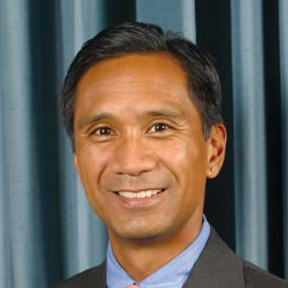CIA Director Michael Hayden’s release of a report on the agency’s performance prior to the Sept. 11 terrorist attacks has triggered a predictable result: more of the blame game.
To be sure, the CIA and others made mistakes. For example, an FBI memo warning of the activities of Middle Eastern men at U.S. flight schools never went beyond the desk of a midlevel unit chief, though it arrived at headquarters two months before Sept. 11. If such mistakes had not happened, perhaps the attacks could have been prevented.
But “could have” is not the same thing as “would have.” Those who believe the latter assume that intelligence is a perfect science, but it is as much art as science.
Although the CIA inspector general’s report focuses solely on CIA accountability, it identifies a larger problem: “Neither the U.S. government nor the IC [intelligence community] had a comprehensive strategy for combating al-Qaida.” Before Sept. 11, for example, President Bush didn’t mention al-Qaida at all in discussing U.S. national security. His focus was on rogue states, weapons of mass destruction and ballistic missile defense. And to be fair, the Clinton administration didn’t have Osama bin Laden and al-Qaida squarely in its sights either.
Trying to understand how Sept. 11 might have been averted requires more than a post-mortem on CIA procedures and a second look at the government’s nonexistent strategy for dealing with al- Qaida. Ultimately, the Sept. 11 terrorist attacks are inextricably linked to U.S. foreign policy.
The Sept. 11 Commission concluded that the rising tide of anti-American Muslim hatred is fueled more by what we do—that is, by U.S. policies—than by who we are. Our values, culture and way of life are not the problem; our actions are the problem.
Yet while the Sept. 11 Commission understood that point, it did not prescribe any real change in America’s post-Cold War foreign policy.
If we are unable to admit that some of our policy choices are wrong, how can we hope to correct them? Certainly, al-Qaida—not Americans or American society—is solely responsible for the death and destruction of those attacks. But the U.S. government must be held accountable for ill-conceived policies that have helped motivate terrorism.
U.S. foreign policy that results in unnecessary military intervention—the Balkans under President Clinton and Iraq under George W. Bush—is one of the main causes of the virulent anti- American sentiment fueling terrorism.
To understand what the U.S. government could have done better to prevent Sept. 11 and to understand how we might prevent future terrorist attacks, we need to adopt a more humble foreign policy, as candidate Bush advocated in 2000. That responsibility rests squarely in the Oval Office, not at CIA headquarters in Virginia.







